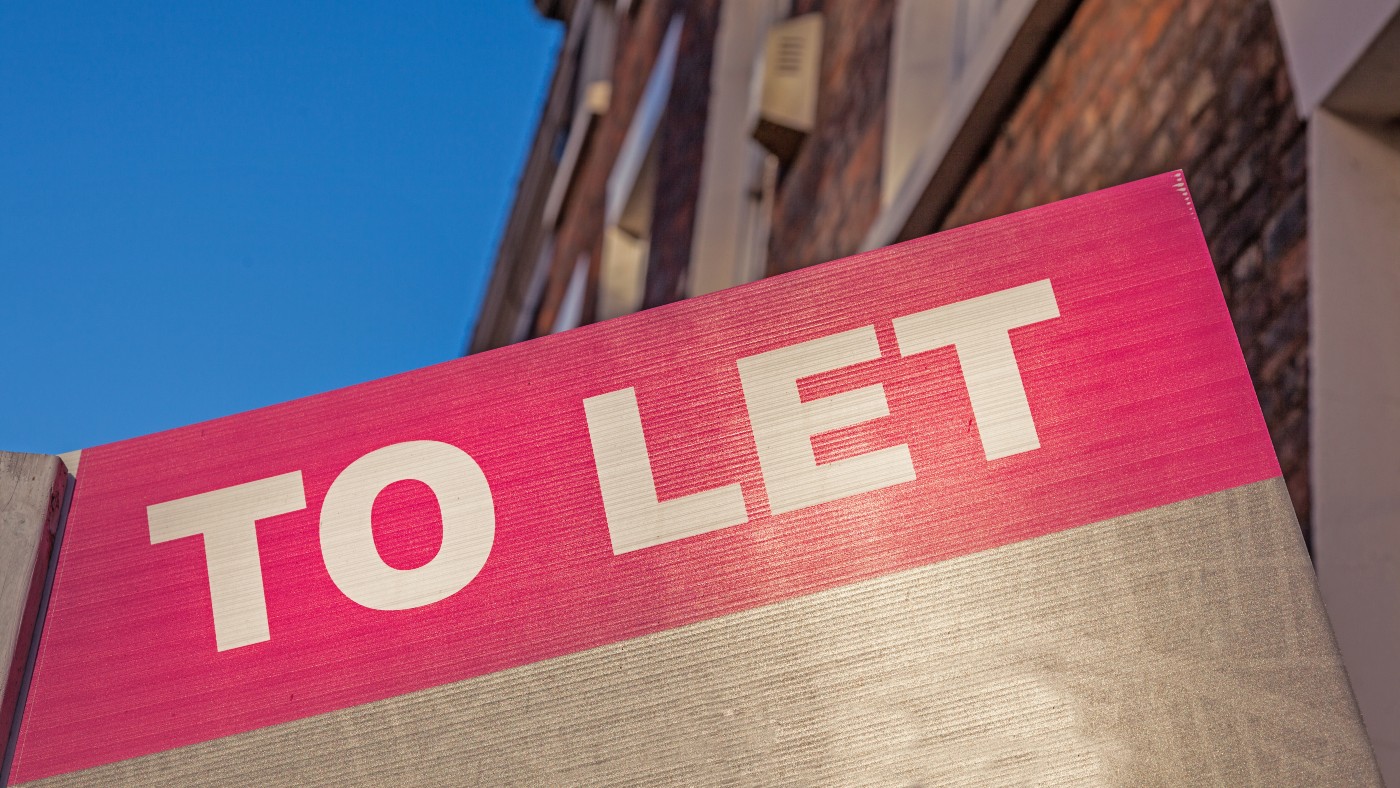What is happening in the UK rental market
Rents across Britain have been rising fast but could be hitting their peak

A free daily email with the biggest news stories of the day – and the best features from TheWeek.com
You are now subscribed
Your newsletter sign-up was successful
The cost of renting accommodation has increased at record rates this year as tenants have been hit by a lack of supply – but according to experts, rents may have peaked.
Rent charges on new listings increased by 9.7% in the year to October, according to Zoopla, owing to a "chronic mismatch" between supply and demand.
But the property website said that rents have peaked and could drop next year due to "worsening affordability" among tenants and increased supply, with some landlords already cutting rents to attract tenants.
The Week
Escape your echo chamber. Get the facts behind the news, plus analysis from multiple perspectives.

Sign up for The Week's Free Newsletters
From our morning news briefing to a weekly Good News Newsletter, get the best of The Week delivered directly to your inbox.
From our morning news briefing to a weekly Good News Newsletter, get the best of The Week delivered directly to your inbox.
Rents still account for a "large but falling portion" of tenants’ earnings, though, said the Financial Times, making it harder to save for a deposit to get on the property ladder.
Why are rents rising?
The number of households privately renting has more than doubled over the past two decades, to five million, according to the 2021 Census.
But tax hikes have fuelled a "landlord exodus" that has resulted in a lack of stock and pushed the rental market to breaking point, said Sky News.
Landlords must pay a 3% stamp duty surcharge on additional property purchases, and law changes mean they have lost reliefs that previously allowed them to offset business costs.
A free daily email with the biggest news stories of the day – and the best features from TheWeek.com
As "more landlords leave" the rental market, the news site continued, "rents rise as demand further outstrips supply".
As well as the "mismatch between supply and demand", said the BBC, "pressure on landlords from high mortgage rates" is also pushing up rental costs.
Buy-to-let mortgage rates have dropped in recent months, but remain "sky-high from where they were a little more than a year ago" and that extra cost is being passed on to tenants, said Which?.
Increased mortgage rates are putting off some would-be first-time buyers too, further increasing demand for rental properties.
Where is rent cheapest?
Tenants in London have had to put up with the "strongest rental growth" this year, according to Hamptons, with rents rising by 11.8%.
The average rent in Greater London as of December was £2,415 per month or £3,174 in inner London, the estate agents said. Wales and the north of England had the cheapest rents at £807 and £891 respectively.
Generally, for "the cheapest rents in the country", the North East is "where it's at", said Zoopla, with an average of £671 per month spent according to the property search website's data.
On the "cheaper end of the scale" are Scotland, Northern Ireland and Yorkshire and the Humber, as rents here average less than £800 per month.
But cheaper rent "doesn't mean you have to move out to the sticks", the website added. Some major cities including Newcastle and Belfast offer some of the cheapest average rents on the market.
Will rents keep rising?
There are signs that rents have "overshot", said MoneyWeek, and landlords are reaching the limit of what they can charge.
Zoopla expects rental growth to halve to 5% next year, while Savills also expects rents to reach an "affordability ceiling" next year, with growth slowing to 3.5%.
Can tenants challenge rent increases?
Negotiation is "usually the only way to challenge a rent increase if your landlord has used a rent review clause", said Shelter.
Tenants can also take their landlord to a property tribunal for free to challenge their rent, but "there's a risk that a tribunal could set a higher rent than your landlord is asking for", the homelessness charity warned.
Rent increases are capped at 7% for tenants living in council or social housing. The government has also promised new rights for private tenants under the Renters' Reform Bill, but one of its flagship measures – to ban "no fault" evictions – has been delayed "indefinitely", said the BBC, until the court system is reformed.
And "there has been little action on the issues driving rising rents", said Big Issue, "namely high demand for properties and a lack of supply".
Marc Shoffman is an award-winning freelance journalist, specialising in business, property and personal finance. He has a master’s degree in financial journalism from City University and has previously worked for the FT’s Financial Adviser, the financial podcast In For a Penny and MoneyWeek.
Marc Shoffman is an NCTJ-qualified award-winning freelance journalist, specialising in business, property and personal finance. He has a BA in multimedia journalism from Bournemouth University and a master’s in financial journalism from City University, London. His career began at FT Business trade publication Financial Adviser, during the 2008 banking crash. In 2013, he moved to MailOnline’s personal finance section This is Money, where he covered topics ranging from mortgages and pensions to investments and even a bit of Bitcoin. Since going freelance in 2016, his work has appeared in MoneyWeek, The Times, The Mail on Sunday and on the i news site.
-
 Is Andrew’s arrest the end for the monarchy?
Is Andrew’s arrest the end for the monarchy?Today's Big Question The King has distanced the Royal Family from his disgraced brother but a ‘fit of revolutionary disgust’ could still wipe them out
-
 Quiz of The Week: 14 – 20 February
Quiz of The Week: 14 – 20 FebruaryQuiz Have you been paying attention to The Week’s news?
-
 The Week Unwrapped: Do the Freemasons have too much sway in the police force?
The Week Unwrapped: Do the Freemasons have too much sway in the police force?Podcast Plus, what does the growing popularity of prediction markets mean for the future? And why are UK film and TV workers struggling?
-
 Six ways to boost your finances in 2026
Six ways to boost your finances in 2026The Explainer It’s not too late to make a new year’s resolution to finally get organised money-wise
-
 Could a part-and-part mortgage help you on to the property ladder?
Could a part-and-part mortgage help you on to the property ladder?The Explainer Combining repayment and interest-only mortgages could become more popular as part of a push towards more flexible lending
-
 Why it’s important to shop around for a mortgage and what to look for
Why it’s important to shop around for a mortgage and what to look forThe Explainer You can save big by comparing different mortgage offers
-
 What are portable mortgages and how do they work?
What are portable mortgages and how do they work?the explainer Homeowners can transfer their old rates to a new property in the UK and Canada. The Trump administration is considering making it possible in the US.
-
 What’s an adjustable-rate mortgage and what are the risks?
What’s an adjustable-rate mortgage and what are the risks?The Explainer Buyers are increasingly willing to take the gamble of a changing rate
-
 How will Fed rate cuts affect the housing market?
How will Fed rate cuts affect the housing market?the explainer An anticipated series of Federal Reserve cuts could impact mortgage rates
-
 What's a bridge loan and how could it make buying your next home possible?
What's a bridge loan and how could it make buying your next home possible?The Explainer This type of loan has both pros and cons
-
 Housing costs: Is deregulation the answer?
Housing costs: Is deregulation the answer?Feature Washington, D.C.’s NoMa neighborhood is now leading the nation in new apartment construction